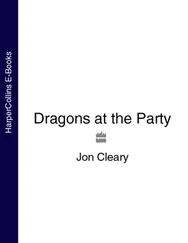1 ...8 9 10 12 13 14 ...21 ‘Madge is going with me.’
‘You will not be allowed.’
‘Permission has already been granted.’
‘Not by me.’
Her voice was truly sad now. ‘Dad, Madge and I are grown women. You don’t try to understand that, just as you never tried to understand Tom’s point of view—’
‘Don’t mention your brother.’ He had stopped calling him my son . That implied some bond still existed between them, when there was none.
Ettie bowed her head. Whenever she was with her father, speaking in Japanese as he insisted, she automatically fell into certain Japanese gestures. ‘Madge and I will be leaving in two days’ time. We’d like to go with your blessing.’
He walked away from her, up towards the barbed wire that ran right round the camp. He was aware of the soldier, rifle slung over his shoulder, watching him from the nearest guard-tower, but he ignored him. There had been several escapes from the camp, including one attempt at a mass break-out; half a dozen of the escapers had been shot and all but three of the others had been recaptured. He had never himself attempted to escape, because he had known that his lot would not be improved: he would only have been at large in America. He was prepared to wait till the war was over, till Japan had won and he could go home again to the land of his ancestors. But lately he had been kept awake at night by doubts; if American propaganda could be believed the war was going badly for Japan. He was querulous with impotent rage at the gods. He had never been religious, but he had to blame someone other than the generals for the way things had gone. It did not occur to him to blame the Emperor.
In 1923, when his brother had died, Chojiro’s parents had written to say he was forgiven and was no longer in disgrace. In the late summer of that year he went home alone, leaving Tsuchi and the children in Gardena. Getting off the ship in Yokohama he went straight to a geisha house, determined to plunge into old customs as soon as possible; if there were any geishas in Gardena, he had never met any. He was still in the house when the great earthquake of 1 September struck at just over a minute before noon. He had been dressed and ready to leave when the house suddenly fell down around him. He survived, unhurt but for cuts and bruises, and for the next seven days distinguished himself by his bravery and his devotion to the injured. Four hours after the earthquake struck, a cyclone blew up, fanning the burning buildings and houses into an inferno. Over 100,000 people died or were posted missing and Chojiro would carry the memories of that week with him forever. He was superstitious enough to wonder at first if it meant some omen about his return to Japan.
But no: he went home to Nagasaki a hero. Both Asahi and Mainichi ran stories on him and he went home to more than just a prodigal son’s welcome. From then on he had known he would never be happy to die in America, that eventually he would have to be laid to rest in the shadow of the hills outside Nagasaki where he had grown up. He had gone back again in 1927, telling his father he would come home to stay when he had made himself a rich man in America. He had become Westernized to that extent: the prodigal son is even more welcome if he brings home his own fatted calf. He had come to realize, though reluctantly, that he lived better in America than his parents did in Japan.
In 1929 he had returned to Japan once more, this time taking Tamezo with him. The 13-year-old boy had not minded going; after all, his best friend, Kenji Minato, was also going, with his father. The two boys had been left with their respective grandparents; at the end of two years Tamezo had been glad to return to America, but Kenji had stayed on, content to be thoroughly Japanese. Chojiro had been bitterly disappointed and almost uncomprehending when Tamezo, in his first fit of filial rebellion, told him how much he had hated Japan and everything about it. He had taken Tamezo with him again in the summer of 1937, when Hideki and Mieko Minato had gone home to live in Japan for good. But the visit had not been a success. Tamezo had been politely respectful towards his grandparents, but adamant towards his father that Japan was not for him.
Tamezo had visited the Minatos in their new home in Tokyo and come away shocked. ‘Ken’s become one hundred per cent Japanese,’ he told his father. ‘Ken – he wouldn’t let me call him that, like I used to. He insisted on Kenji—’
‘As he should,’ said Chojiro. ‘You should take him as an example.’
‘Dad, I don’t want that sort of example. For Pete’s sake, I just want to be an American – what’s wrong with that?’ As if to prove his point, Tamezo spoke in English. ‘That’s where we live, isn’t it?’
‘Only till the right time comes to leave,’ said Chojiro in Japanese.
Over the next few years Chojiro talked of going home to Japan to stay. But, though he was not demonstrative, he loved his children and he came to realize that, if he and Tsuchi retired to Japan, Tamezo and his sisters would refuse to accompany them. They had become Americans, despite all his sometimes harsh discipline that was meant to make them Japanese.
He had welcomed the bombing of Pearl Harbor as if it were a blow for freedom. ‘You will see now what Japan can teach the world. There are still too many barbarians masquerading as civilized people.’
‘Hitler, for instance?’ said Tamezo, now insisting on being called Tom.
‘Germany is like Japan, it is entitled to its own sphere of influence. Do you think the barbarians we have in Washington are any better?’
They had argued, stiffly polite, with Tom choking on his anger at his father’s attitude. Then the barbarians did start to emerge. Westbrook Pegler wrote in his column: ‘The Japanese in California should be under armed guard to the last man and woman right now – and to hell with habeas corpus.’ California’s Attorney-General, Earl Warren, demonstrated that Justice could be as blind in one eye as any politician cared to make her. The Western Defence commander, Lieutenant-General De-Witt, showed his stars as a racist; he took an overdose of patriotism, a bad thing for military men. There were no American-Japanese, as far as the bigots were concerned: they were Japs and nothing else, not even to be trusted as much as Germans. The Yellow Peril was peril indeed, and on 19 February 1942, President Roosevelt, one of Tom’s heroes, signed Executive Order 9066, interning all Japanese from the West Coast.
‘I told you so,’ said Chojiro and packed his bags for the internment camp at Santa Anita racetrack, content to have been proven Japanese by the barbarians. Though they did not know it, he and his family were quartered in a horsestall that had once housed Phar Lap, an Australian national hero that had come to California and, according to Australian legend, been poisoned by the Americans. No one was safe from the barbarians, not even horses.
He had ignored Tamezo’s vehement protests to the authorities at Santa Anita and then at Blood Mountain. It was shameful to have a son who so openly and loudly declared his allegiance to the American flag; so he went out of his way to shut America out of the family circle. In the camp he insisted that nothing but Japanese should be spoken amongst them. He had not taken part in any of the pro-Japanese demonstrations by the Issei and the Kibei, the Japan-educated Nisei, leaving that to the younger men; but he had sat in on the meetings that had planned the demonstrations. When a group of Kibei had attacked Tamezo, who had abused them for their treason to the land of their birth, he had turned his back and walked away, though it had hurt him more than he would ever confess, even to Tsuchi.
When in 1943 Tamezo had, after a number of applications, at last been accepted for army service, Chojiro had once more turned his back. This time he had moved out of the family hut and remained out of it till Tamezo had left for Camp Shelby, Mississippi. Once his son had gone he had joined all the demonstrations, as if he were fighting his own small private war. He had to wash away his shame in front of the other Issei.
Читать дальше












